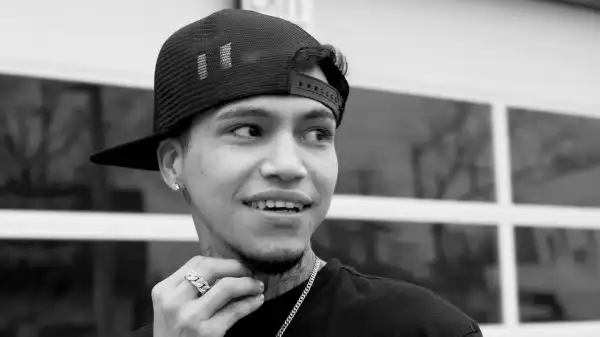
Save this storySave this storySave this storySave this story
On the morning of April 23, 2024, Claudio David Balkane González, a twenty-six-year-old musician from the state of Aragua, Venezuela, arrived at the Texas border. He had crossed nine countries in the previous three months before approaching U.S. Department of Homeland Security officials through CBP One, a Biden administration program aimed at streamlining the asylum process. Border Patrol agents detained him at the station until midnight, asking questions about his background and his many tattoos, which included a rose, a watch, a crown, and two guns. He was eventually released with an immigration court date. Balkane met a friend in San Antonio and posted a photo of him on Instagram with the caption, “If you can dream it, you can do it.”
Balkane, who goes by the stage name Davicito59, started making music at age 13 and spent a lot of time performing on buses around Maracay, the capital of Aragua. He started out as a rapper but then switched to dembow, a genre that originated in the Dominican Republic and has become incredibly popular among Venezuelans in the United States. Almost a month after he arrived in the country, Balkane released a song called “Yo me voy por el Darién,” which chronicles the risks of crossing the jungle between Colombia and Panama—jaguars, soldiers, criminals—and the hopes that kept him going. “We ate rice with vulture meat, but we held our heads up,” Balkane sings. “We left home with a mission: to succeed.” He called it “el nuevo himno de los caminantes”—the new anthem of the walkers—and it quickly gained traction on social media. Balkane soon began working with more established artists, including John Theis, a pioneer of Venezuelan dembow in the United States. At a Detroit concert, Theis teased Balkane onstage: “This guy here signs baseball caps!” he said. “You didn’t sign baseball caps in El Darien.”
Balkane’s big break came in February, when he teamed up with Junior Caldera, a popular dembow singer in Venezuela, and Luxor, an immigrant and relatively new artist to the scene. The track, titled “Donaltron,” has a hypnotic, addictive beat, with lyrics that criticize the Trump administration’s immigration policies and call for the president to show mercy. “I promise you I won’t smoke — I won’t drink no more beer,” Balkane sings. “Well, just a little bit, it won’t hurt!” The video, clips of which have been viewed millions of times on TikTok and Instagram, shows the musician battling a dancer wearing a rubber Trump mask at various locations around Chicago, including Trump Tower. “Just give me a couple months to get an American girl,” Balkane sings. “I’ll give you some kachapas in return.”
The song has received mixed reactions online. Most listeners found it cheerful and refreshing, but others, including many Venezuelans, reacted with disdain. “Those of us who behave well don’t make noise, so they think we don’t exist,” wrote one commenter. “Those who behave badly, a small number, make noise, and the rest of us are harassed.” Others were even more aggressive: “Please deport him to a remote island.” Someone else added, “Guantanamo.” Many commenters mentioned Trump, ICE, CBP, and DHS.
Two months after the release of “Donaltron,” Balkane was detained by federal agents as he left his Chicago apartment. He was thrown to the ground and handcuffed; an agent knelt on his neck. When he protested that he was an artist, not a criminal, the agent responded, “We know exactly who you are. That’s why we’re here.” (A senior DHS official said, “Any allegation of excessive force is untrue.”)
Balkane was taken to an ICE facility, where agents accused him of ties to Tren de Aragua, a Venezuelan gang that the Trump administration has designated a terrorist organization and that they say threatens the United States. The agents offered no evidence other than Balkane’s tattoos, which they said were associated with the group. While searching his phone, they played a “Donaltron” video. “How funny is he singing against deportation and he’s about to be deported,” one agent noted.
Balkane told his story from a Wisconsin detention center, where he awaits a May 29 hearing. Santa Rita, where he grew up, is a dangerous neighborhood on the outskirts of Maracay, but people close to the musician deny any connection to Tren de Aragua; he has no known criminal record in the U.S. or in Venezuela, Colombia, Ecuador or Peru, where he previously lived. Balkane said he left Venezuela after receiving
Sourse: newyorker.com






